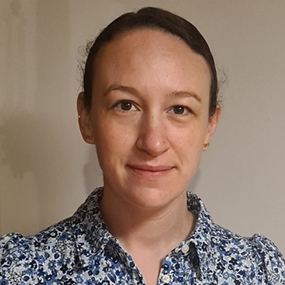- Bulletin: Winter 2025
- Opinion
Neurodivergence and the hidden vulnerable
Dr Charlotte Redshaw explores neurodivergence and asks what extent our perception of vulnerability is a stereotypical one and how often we assume that an unlabelled person is neurotypical.

How to manage a child with autistic spectrum disorder for anaesthesia is a common final FRCA question – 20-mark question, job done. Congratulations, you now know how to manage autism. We try to help those with difficulties and protect the vulnerable, but to what extent is our perception of vulnerability a stereotypical one and how often do we assume that an unlabelled person is neurotypical?
Neurodiversity is an umbrella term to cover dyslexia, ADHD, autism spectrum disorder, dyscalculia, dysgraphia and Tourette’s syndrome, but it is really used to refer to anyone who differs in mental or neurological function from what is considered normal. It is estimated that there are 13 million neurodiverse UK citizens, 40% of whom don’t know that they are neurodiverse.
Most of what we think of as the stereotypical presentations of autism are more specific to males, and many women and girls have struggled to get a diagnosis until later in life or are misdiagnosed with other mental health problems such as anxiety. Girls and women are more likely to ‘mask’ their autistic traits and copy normal social behaviour, but the stress of doing so can lead to anxiety and be overwhelming.
Most people who don’t fit a neurotypical profile will have spent most of their lives trying to hide it, and often they may not know what it is that is wrong – they are the ‘hidden vulnerable’. It’s a bit like pretending to be French – people can’t necessarily put a finger on what it is that is wrong, but it just doesn’t sit well with what they know to be genuine. It makes evolutionary sense to shun people and things that don’t seem right, unfortunately it seems to be a tough habit to break. This just leaves an individual who has been bullied for most of their childhood and politely ignored as an adult, but has no idea why. Being neurodivergent doesn’t mean you don’t want or need social interaction, but it is an awful lot safer not to try and make friends because rejection doesn’t hurt any less.
Challenging assumptions
Some vulnerabilities are obvious, and as healthcare professionals we take great care to provide suitable patient-focused care. However if the individual in front of you appears ‘normal’ and doesn’t have a helpful label in their healthcare record, how often do you stop to consider whether they are vulnerable? As human beings we make a huge amount of assumptions about people we meet, but as healthcare professionals perhaps we should try to challenge these and think about them every time we interact with a patient. Times of ill health are stressful to everyone, but if your coping mechanisms are stretched under normal circumstances, how close to breaking point might you be during the most routine clinical encounter? How we phrase questions can make a huge difference – ‘Do you have…?’ is a neutral question; ‘Don’t you have…?’ clearly has a right and wrong answer to it, and if you ‘don’t have’ you can feel embarrassed and isolated and unwilling to admit to ‘not having’ whatever it is that all normal people clearly have. Then when you don’t answer, because you neither want to lie nor admit to failing to be normal, the assumption is that you have what everyone else has and clearly don’t need any help. Sometimes it is just easier not to ask for help. Is it surprising then that a study following up autistic people over a 20-year period found that the average age of those that died was 39? It’s not just the patients who might have hidden vulnerabilities; family members, staff, students, anyone can be affected. It is so much easier to label someone as difficult and challenging, because then you can avoid the challenge of dealing with their difficulties and distress.
Accessibility for all
Perhaps we should move away from providing equitable services for patients with ‘insert label here’, and provide equitable services for all patients regardless of whether they have a label or can even define what their difficulties are. We all have difficulties, but some have more impact on what we consider normal daily living than others. Imagine if, when competing on Masterchef, running marathons or singing on stage was compulsory? Our perception of those with ‘difficulties’ would soon change. It is hard to find the time and the energy in our overstretched NHS, but sometimes, despite outward appearances, the person inside the patient in front of us could be scared and lonely, and in desperate need of some kindness.
Making healthcare truly accessible for all people with neurodiversity is a gargantuan task, but all things start with the first steps. Can we think about the way we phrase questions and throwaway comments? Can we identify some of the assumptions that we make and challenge our own behaviour? Can we be a bit more understanding towards the ‘oddball’ in the department? I hope so!
Would you like to read more articles from this Bulletin?


